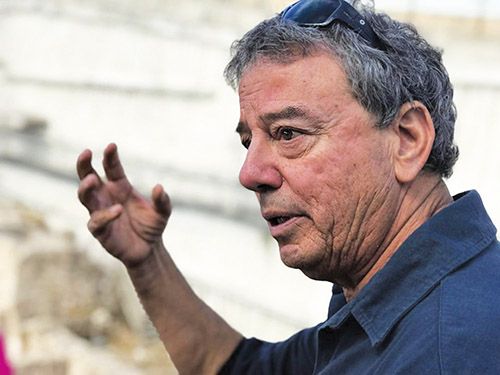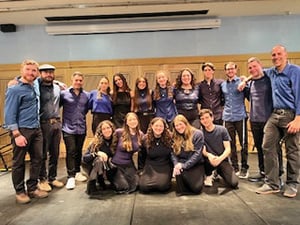

On September 14, what is being called by experts a once-in-a-lifetime discovery was made in Israel. During routine work by the Israel Nature and Parks Authority, a mechanical digger accidentally penetrated the roof of an ancient 13th-century BCE burial cave, dating from the time of Egyptian Pharaoh Ramses II. The ancient burial cave was discovered in Palmachim Beach National Park in Yavneh-Yamin Israel.
Artifacts found included several dozen intact pottery vessels and bronze spears or arrowheads, placed as in a burial ceremony of approximately 3,300 years ago, in the belief that they would serve the dead in the afterlife. Pottery vessels imported from areas such as Cyprus, Ugarit on the northern Syrian coast and from Yafo (Jaffa), Ashdod, Ashkelon, Gaza and Tel Ajjul were also found. This revealed evidence that the people of Yavneh-Yam (Palmachim Beach) played an essential part in trading activity that took place along the coast. Other artifacts included deep and shallow pottery bowls and some red-painted footed chalices, storage jars and oil lamps. Officials also found bronze arrowheads that were likely in a quiver that has since decomposed.
And now, when you visit Israel, you and your family can participate in an official archaeological excavation and see how it feels to uncover ancient stories of history with your own hands. Operating since 1981, Archaeological Seminars is based in the Tel Maresha area of Israel’s Beit Guvrin National Park, a UNESCO World Heritage Site. The site is licensed by the Israel Antiquities Authority and operates as a full-fledged research project, supervised by Dr. Ian Stern and under the academic umbrella of the Zinman Institute of Archaeology of the University of Haifa. Stern joined Archaeological Seminars in 1985. All discoveries made on the “Dig” are analyzed and cataloged. Some discoveries are now displayed in the Israel Museum in Jerusalem and are featured in academic publications.
“The program has been designed to give people a chance to participate in an active educational experience. To ‘touch their roots,’ so to speak. Although the population at the site was very cosmopolitan, the time period of the site is primarily from the time of the Maccabees, and this is emphasized at the site with the groups,” said Stern.
Stern continued: “I have been involved at this site for over 30 years. The head archaeologist before me was my mentor, the late Professor Amos Kloner. Since 2000 I have been directing the excavation. Dig-for-a-Day was established by a couple from Chicago, Fran and Bernie Alpert, z”l approximately 40 years ago. Over a million people have had this amazing experience in different locations over the years. Our focus for the past 30 years has been at Maresha.”
The “Dig-for-a-Day” adventure starts with an introductory explanation giving historical context for the excavation. Next, participants descend into one of the many caves to begin excavation.
When participants return above ground, they sift through the material that they have dug up. The next activity is a “crawl,” a tour of an untouched cave system and/or a tour of a finished cave system. The dig ends with a short summation describing some of the most important finds. Each group is led by its own professional guide under the auspices of Archaeological Seminars.
Safety requirements include the wearing of completely closed shoes such as sneakers or hiking boots. Participants will also need to bring a lot of water and children must be accompanied and supervised at all times by parents or other responsible adults. No children younger than 5 years of age may participate in the “crawl” activity, and an appropriate number of adults need to wait above ground with them.
“The experience is geared to all ages who wish to be actively involved in uncovering life in Israel in the period of the early second Temple period,” said Stern. “It involves digging in underground areas protected from the heat in the summer and the cold and rain in the winter.”
The “Dig” operates Sunday-Friday. Both public and private packages are available for booking, in either Hebrew or English.
For more information: www.digforaday.com or [email protected] phone in Israel 03-9150080, from abroad +972-3-9150080 video: https://youtu.be/o5Y3kjAvEeI
By Susan R. Eisenstein












